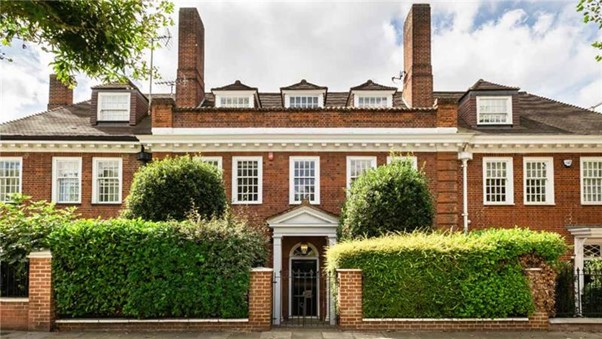Market update: Savills say prime central London property market has bottomed out
Whilst political uncertainty remains a constant, according to property experts at Savills, values in the prime central London residential market fell by just -0.3% between July and September 2019 – the smallest quarterly adjustment seen over the past four years.
Savills believe that the extent of price falls across all price bands and property types suggests pricing now fully reflects the current market conditions and risks. Further to insight shared at our latest event, ‘The resilience of prime property in uncertain times’, Savills highlight once again that current GBP values mean London property remains attractive to international, foreign currency buyers.
According to Savills’ quarterly index, across prime central London postcodes where properties average £4.4 million, values are now on average -13.6% below their pre 2016 EU referendum level and -20.4% below the market peak in 2014.
Savills says 68% of their London agents cite Brexit as the biggest constraint on the current market and the firm expects continued buyer and seller caution for the remainder of 2019, as EU negotiations continue. However, Lucian Cook head of Savills residential research commented that further significant price falls up to the end of the year are not envisaged:
“This broad price correction across prime central London is comparable with falls seen post GFC (Global financial crisis) and in the downturns of the early 80s and early 90s, suggesting the market is now close to a full re-pricing,
“…There’s a growing pool of domestic and international money waiting to exploit a perceived buying opportunity, subject to getting more clarity on what lies ahead politically and economically. Deal or no deal Brexit, a bottoming out in the value of sterling should act as the trigger to unlock pent up demand.”
| Q3 2019 | Prime Central London |
|---|---|
| Quarterly growth | -0.3% |
| Annual growth | -3.0% |
| 9 months to Sep-19 | -1.8% |
| Since EU referendum | -13.6% |
| Since 2014 peak | -20.4% |
| Since 07 peak | 11.6% |
Source: Savills ‘Prime central London bottoms out, but uncertainty holds back the bounce’
The view from CapitalRise
Since opening our doors over three years ago, CapitalRise has been committed to providing loans to support property acquisition, development and developer exit scenarios in prime central London.
Over the last six months, we have screened £1.9bn in loan applications, which is a 30.28% increase on the six months prior. We attribute a large part of this growth in demand to the fact that developers are now able to purchase sites at c. 20% below 2014 market values, making it an attractive time to start a new project.
The latest Savills Research is further evidence of our belief in the underlying strength of this sector, when many have turned their back on it. We look forward to this resilient market realising its true potential once again.
IMPORTANT INFORMATION
The information and opinions provided in this blog post is for general informative purposes only and is not intended to provide specific advice or recommendations for any individual or any specific investment opportunity.
Capital is at risk & interest payments are not guaranteed. Investments on our platform are illiquid and investors should consider these as long term investments. Investments are not directly into property. Investors are issued bonds by dedicated subsidiary property companies. Past performance and forecasts are not reliable indicators of future performance. There is no recognised market to sell this investment. Tax rules and allowances are dependent on individual circumstances and may change in the future. We recommend you seek advice from an appropriately qualified independent professional. See key risks before investing. Investment performance is not covered by the Financial Services Compensation Scheme.




